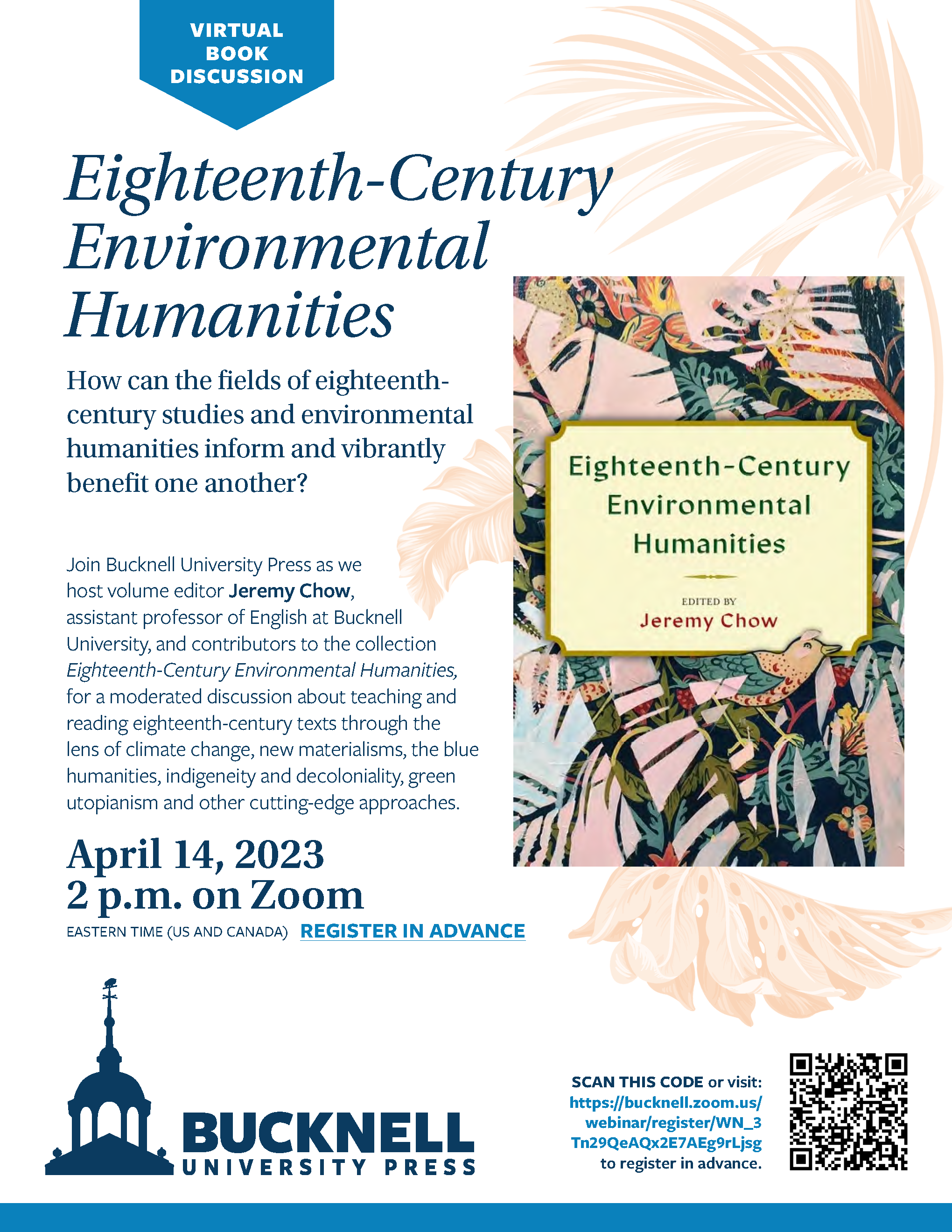How can the fields of environmental humanities and eighteenth-century studies inform and vibrantly benefit one another? Join Bucknell University Press and Transits series editor Miriam Wallace as we host volume editor Jeremy Chow, assistant professor of English at Bucknell University, and contributors to the collection Eighteenth-Century Environmental Humanities, for a moderated discussion about teaching and reading eighteenth-century texts through the lens of climate change, new materialisms, the blue humanities, indigeneity and decoloniality, and green utopianism, and other cutting-edge approaches.
Friday, April 14, 2023 02:00 PM in Eastern Time (US and Canada)
Register in advance: https://bucknell.zoom.us/webinar/register/WN_3Tn29QeAQx2E7AEg9rLjsg

Praise for Eighteenth-Century Environmental Humanities:
“A welcome teaching tool for the undergraduate course in eighteenth-century studies—if you want to integrate environmental studies into your class but don’t know where to begin, start here.”—Lucinda Cole, author of Imperfect Creatures: Vermin, Literature, and the Sciences of Life, 1600-1740
“A field-defining collection, Eighteenth-Century Environmental Humanities demonstrates how the emergent methodologies of the environmental humanities illuminate and are in turn enriched by the study of eighteenth-century history and cultural production.”—Peter Remien, author of The Concept of Nature in Early Modern English Literature
“This innovative collection brilliantly addresses the challenge of studying and teaching the eighteenth century from an Anthropocene vantage. The wide-ranging essays explore the meaning of environmental justice for eighteenth-century writers reckoning with the socio-ecological violence of transatlantic empire.”—Tobias Menely, author of Climate and the Making of Worlds: Toward a Geohistorical Poetics
“Chow and the contributors offer a provocative and compelling case for centering the eighteenth century within environmental humanities. This interdisciplinary collection of essays will be of great interest and lasting value to literary scholars and teachers, and it will serve as a touchstone for all future work at the intersections of eighteenth-century studies and the environmental humanities.”—Seth Reno, editor of The Anthropocene: Approaches and Contexts for Literature and the Humanities